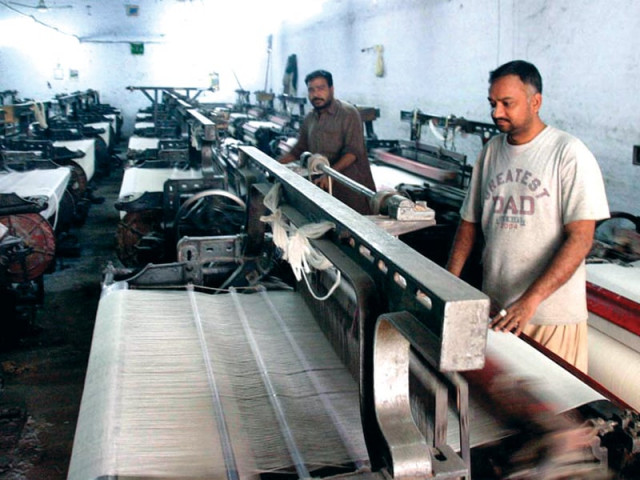Borrowing cost: Reduced rate for exporters of textile proposed
Minister says incentives will focus on value-addition chain.

The proposal is part of a new five-year textile policy that the government wants to implement from July this year, said Afridi. PHOTO: FILE
The government is considering to significantly offset the cost of borrowing for value-added textile sector. The step is aimed at increasing textile exports by an additional $3 billion per annum by shifting it from raw material exports, said Textile Minister Abbas Khan Afridi.
The proposal is part of a new five-year textile policy that the government wants to implement from July this year, said Afridi, while addressing a press conference on Wednesday. Unlike the past, this time the focus of the incentives will be on the value-addition chain, he said.
The textile ministry is proposing a minimum 5% discount in interest rates for those bringing new investment in the value-added sector, said the minister. However, he said the final decision will be taken by the finance ministry as any proposal which is not backed by the economic managers will not be added in the policy.
“The textile ministry was seeking Rs50 billion for the next financial year to pay off Rs30 billion claims under the outgoing policy and Rs20 billion to pick the interest cost in the next fiscal year,” said a ministry official.
He said the government was also considering a proposal to offer 3% to 5% rebate on increasing exports in the value-added sector from the next fiscal year.
“Against 950 value-added products, Pakistan is exporting only 13 products to the world, leaving the rest of the market to other competitors,” said Afridi, adding that Pakistan has an advantage of cheap labour and the industries are starting to shift from countries like China where the labour is becoming expensive.
Afridi regretted that so far the textile sector has been ignored and the country is focused on exporting cotton, which is white gold, in the shape of raw material.
“Pakistan is among five countries that have complete value-addition chain but it never fully exploited the opportunity,” he said.
Under the new policy, the textile ministry has also proposed Rs2.5 billion allocations for imparting stitching training to 120,000 individuals.
Afridi said under the new strategy the government wanted to increase the volume of textile exports to $26 billion but this cannot be achieved without offering incentives. He said the government will also focus on improving the quality of seeds.
As part of the plan, the government will soon table the Plants Breeders’ Right Protection Bill in the National Assembly, which has been pending for the last 12 years. The minister further said the vested interests have so far delayed the presentation of the bill, as they were fully exploiting the Rs60 billion seed market.
He said in Pakistan there were 700 registered companies dealing in the seed business but registered seeds usage was only half of the total seeds used in production.
“In the new policy, the funds have been proposed to be allocated for waste treatment plants for promoting green industry,” said the minister.
Published in The Express Tribune, May 15th, 2014.
Like Business on Facebook, follow @TribuneBiz on Twitter to stay informed and join in the conversation.



















COMMENTS
Comments are moderated and generally will be posted if they are on-topic and not abusive.
For more information, please see our Comments FAQ